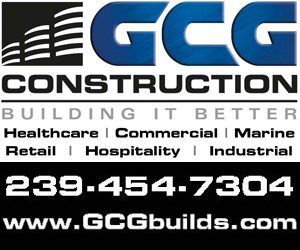

Popularity of 1031 Exchanges Reflects Market Strength
ROUND TABLE November 5, 2015 admin

Over the last year or so, Southwest Florida’s real estate market has been heating up, making 2015 a banner year for property owners who wanted to sell during the downturn but couldn’t, even at significantly reduced prices. Today, buyers outnumber sellers, even as real estate prices continue to rise.
Appreciation is a double-edged sword for sellers, who are taxed at either 15% or 20% on capital gains, depending on their income. The capital gains tax jumped by 3.8% this year, prompting many sellers to search for ways to avoid it — legally. Increasingly, commercial owners and investors are discovering the 1031 Tax-Deferred Exchange as one of the best ways to preserve their profits. As a result, there’s been a substantial influx of money into the investment real estate market, which had been fairly dormant until recently.
Qualifications & Limitations
With a tax-deferred exchange, owners of certain types of real and personal property can sell their asset without paying taxes IF they buy a comparable, or like-kind, property. Like-kind refers to an owner’s use of the property — not to its grade or quality — and may include a wide variety of residential and commercial real estate, including land, rental and business property. This makes a 1031 Exchange ideal for those who want to roll out of an older investment, where there’s not a lot of depreciation left, and into a new investment while retaining their original cost basis. Just keep in mind that if you’re selling or “relinquishing” an investment property, you can’t exchange it for a primary residence.
There are also time limitations imposed on real estate exchanges. First, you must identify your replacement property within 45 days after closing on the property you’re selling. Further, you must close on the identified replacement property within 180 days of the same subject tax year. To successfully qualify for 1031 treatment, your exchange must satisfy both tests.
Pros & Cons
The IRS allows you to identify up to three replacement properties of any value or as many as you want up to 200% of your relinquished property value. So if you sell a property for $1 million, you may choose to: (a) identify up to three properties valued at $1 million or greater; or (b) identify as many properties as you wish whose collective value totals no more than $2 million. That works well for someone who, for example, is selling a high-priced vacation home (rented for more than 14 days per year) and wants to invest the proceeds in several smaller rental houses.
One of the disadvantages of a 1031 Exchange is timing. After all, if you can easily sell at a high price, you’ll probably have to pay a high price for a replacement property. Also, you’re subject to changing interest rates. Even though current rates are favorable, you may end up paying off a low-interest rate loan now only to pay higher rates to borrow in the future.
Finally, you are not allowed to touch any cash proceeds. If you receive the proceeds from the exchange of your property, you will not qualify for 1031 treatment. That’s why an outside party, known as a Qualified Intermediary, must be involved in the transaction.
On the plus side, there’s a shortage of properties on the market right now, so it’s a great time to sell your property and buy a new one. (As I write this, my company is in the middle of writing three 1031 transactions, which is notable in the wake of the recession.) If you continue to do that throughout your natural life, your investments will transfer to your beneficiaries at a stepped-up value. With the proper estate planning and a long-term 1031 investment strategy, all of the gains can be eliminated.
However, before you initiate any property transaction, I urge you to consult with a qualified commercial real estate investment specialist. That person will be able to determine whether a 1031 is right for you by analyzing your objectives and discussing your goals. For instance, are you looking for wealth accumulation? Cash flow? Retirement income? By working with a commercial real estate professional, you can develop the optimum strategy for maximizing your objectives, while taking advantage of the tax-free provisions available under the current income and estate tax codes.
Gary Tasman is CEO and principal broker of Cushman & Wakefield Commercial Property Southwest Florida, LLC. With more than 30 years in the real estate industry, Tasman’s expertise includes all aspects of commercial brokerage, development and financial feasibility analysis. For more information, please contact him at (239) 489-3600 or gtasman@cpswfl. com or visit www.cpswfl.com.








